
This discussion is to promote safety and not to establish liability.
CAA's report contains padding and repetition, so in the interest of clarity, I have paraphrased extensively.
Synopsis:
THE PILOT WHO IS ALSO THE OWNER of the aircraft was on a systems acceptance flight on the day of the accident and should the flight have been successful, he would have flown to Rustenburg.
According to the pilot, shortly after take-off from Runway 11 the aircraft experienced a power loss on the right hand engine. The pilot advised the ATC of the condition and intention to return to the aerodrome.
On downwind the left-hand engine also started losing power. The left-hand engine continued losing power. The speed on downwind was about 100 mph decreasing to a minimum of about 85 mph when turning base. Altitude decreased to about 100 ft AGL to maintain speed on short finals.
The aircraft required more and more right rudder on final approach. The aircraft hit the power lines at 30 ft AGL at about 450m from the threshold of Runway 11, this resulted in a loss of speed and the aircraft stalled.
The pilot and passenger sustained no injuries, however, the aircraft was substantially damaged.
The last MPI was certified on 29 January 2004 at 2396.8 flying hours. The aircraft had accumulated a further 0.35 flying hours since the last MPI.
Probable Cause
The probable cause of the power loss on both engines was attributed to blocked fuel injector nozzles. The cause for the blockage could not be determined. Some water was found in the fuel filter but was regarded as not being sufficient to cause engine failure.
JIM'S COMMENTS
IT'S OBVIOUS - too much air in the tanks we all know that. Or maybe he had the fuel switched off. Or perhaps he was selected to empty tanks.
This story is from the January 2025 edition of SA Flyer Magazine.
Start your 7-day Magzter GOLD free trial to access thousands of curated premium stories, and 9,000+ magazines and newspapers.
Already a subscriber ? Sign In
This story is from the January 2025 edition of SA Flyer Magazine.
Start your 7-day Magzter GOLD free trial to access thousands of curated premium stories, and 9,000+ magazines and newspapers.
Already a subscriber? Sign In
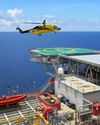
LIVING THE DREAM Part 2: Planning and Pax
Part 2: Planning and Pax
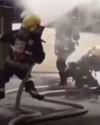
QUEEN AIR TALES
In the early seventies Esquire Airways acquired a pre-owned Beechcraft Queen Air. This top of the range 8,800 lb MAUW model had nine forward facing commuter seats and I flew it as a single pilot operation for several months.

HELICOPTER PILOTS SHOULD UNIONISE
Helicopter pilots are stuck in a 12-month flying cycle. While they will have periods of rest and active rest (performing ground-based tasks and planning ventures) within their work source campaigns, it's not a good situation. They need programmed periods to catch their breath.
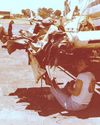
AFTERMATH of the Engine Fire
Iris McCallum continues her stories about her early years with Air Kenya. This month she tells us about the immediate aftermath of her dramatic engine fire and crash, and her subsequent 'getting back onto the saddle'.
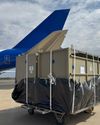
LARGEST EVER RHINO RELOCATION
Specialist air cargo operator ACS mobilised all its skills to successfully complete a very challenging project – the translocation of 39 White Rhino from Namibia to the USA.
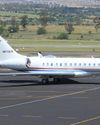
NOVEMBER 2024
November sees strong growth in aircraft registrations with 16 additions, but 10 aircraft are cancelled as exported. The Type Certified additions are a mixed bag.
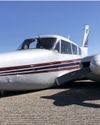
TWINCO FUEL
AIRCRAFT ACCIDENT REPORT
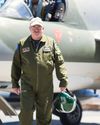
RON WHEELDON'S HUNTERS
RON WHEELDON is a Johannesburg based trademark and IP attorney. He writes, \"My love affair with Hawker Hunter jet fighters started in approximately 1963 when the Rhodesian parliament opening was marked by a fly-by of nine recently acquired Hawker Hunters in diamond formation.
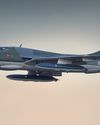
FLYING THE HAWKER HUNTER
Flying a Hunter starts hours before actually walking out to the aircraft. This machine is a legend, but it is first of all about the highest performance machine that it is feasible for a civilian to fly. Flying it is not to be taken lightly.
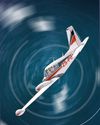
RIGHT SEAT RULES NO. 25 SLOW FLIGHT
Most of us feel a bit edgy when the ASI creeps down within 10 KIAS of the stall. Jim Davis has some hints on how to be comfortable and in control - even when the airspeed is 20 KIAS below the stall.